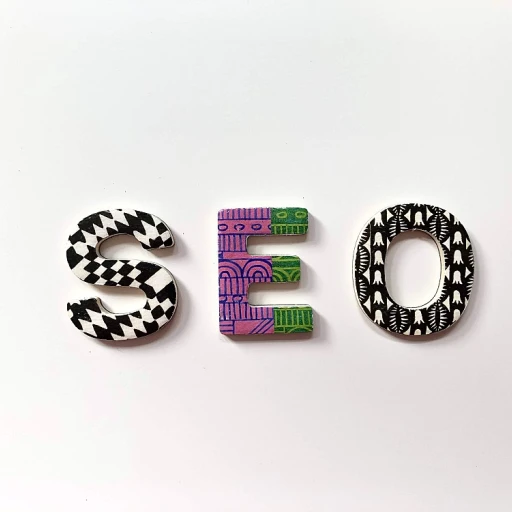The Predictive Power of AI in Keyword Optimization
Unveiling AI's Predictive Analytics in Keyword Optimization
The landscape of search engine optimization (SEO) is rapidly transforming with the advent of artificial intelligence (AI). The predictive power of AI in keyword optimization has been a game-changer for digital marketers and SEO strategists. By leveraging machine learning algorithms, AI can process massive datasets to predict search trends and the performance of specific keywords with unprecedented accuracy. This foresight enables SEO experts to craft content strategies that resonate with their target audience and clasp the top search rankings.
With AI's inception into SEO, the guesswork in keyword discovery is significantly reduced. Platforms using AI technology can analyze search volume, competition, relevancy, and user intent to suggest high-value keywords. This not only helps in generating organic traffic but establishes the foundation for robust content marketing campaigns tailored to answer the evolving queries of internet users. As AI analyzes search patterns, it becomes adept at forecasting seasonal trends and emerging topics, giving SEO practitioners a vital edge in a highly competitive digital space.
Empowering Semantic Search with AI's Deep Learning
One of the cutting-edge applications of AI in keyword optimization lies within the realm of semantic search. Deep learning, a subset of machine learning, has significantly enhanced the understanding of search engines regarding user context and intent. AI systems can now interpret the nuances of natural language, discerning the meaning behind search queries rather than just matching keyword strings. This allows for the development of content that aligns more closely with the searcher's intent, leading to improved user engagement and a higher probability of ranking success.
Case studies reveal that content backed by AI-driven semantic analysis tends to perform better in SERPs. This is because such content addresses the exact needs of the searcher, providing them with valuable information and a superior user experience. In essence, AI makes it possible to optimize for topics and concepts rather than merely focusing on keywords, which aligns with search engines' sophisticated algorithms. This paves the way for an era where quality content, powered by intelligent analysis, reigns supreme in search visibility.
Forecasting SEO Success with AI's Predictive Insights
As AI continues to evolve, it's becoming instrumental in predicting the future of SEO. By tapping into AI's predictive analytics, content creators can adapt their strategies even before trends become mainstream, allowing them to stay ahead of the curve. Accurate predictions hinge upon sizable datasets, and AI is unrivaled in its ability to crunch numbers and detect patterns. By synthesizing data from various sources - social media, search engines, and user behavior - AI provides a panoramic view of potential SEO outcomes.
To illustrate, consider how AI algorithms can identify the potential rise of a niche market based on online discussions and search question patterns. By using this data, companies can preemptively create and optimize content for that niche, thus capitalizing on the trend as it gains traction. These statistical insights, coupled with expert analysis, are becoming invaluable assets in the SEO toolkit. Looking forward, we can expect SEO campaigns to be informed increasingly by AI's robust predictive capabilities, ensuring that content not only reaches its intended audience but also delivers measurable business impact.
The Algorithmic Evolution: AI's Role in Search Rankings
Unveiling the Black Box: How AI Transforms Ranking Algorithms
The landscape of search engine optimization is undergoing a seismic shift with the emergence of artificial intelligence. Traditionally, SEO professionals relied on a mix of educated guessing and continuous testing to deduce the myriad factors influencing search engine rankings. Now, thanks to AI, the black box of search algorithms is gradually unfolding, revealing intricate patterns and preferences invisible to the naked eye. AI in SEO doesn't just predict outcomes; it actively informs strategies that can propel websites to the front page of search results.
Google's algorithm updates, such as BERT and RankBrain, are testaments to the evolving nature of search technology. These AI-driven algorithms can interpret the nuances of human language with unprecedented accuracy, rewarding content that resonates with user intent rather than simply matching keywords. AI's machine learning capabilities mean that these algorithms are constantly learning and adapting, making search engine rankings more dynamic and competitive than ever.
For instance, an AI system might recognize that a searcher's intent behind the query 'best bicycle for racing' leans more towards high-performance gear rather than local bike racing events. This insight allows for the refinement of content to meet such specific user demands, thus improving the potential for higher rankings.
Tapping into Machine Learning for Robust SEO Strategies
Artificial intelligence, with its ability to process and analyze vast datasets, offers invaluable insights into how search engines interpret and rank web pages. By leveraging AI-powered analytics tools, SEO experts can identify patterns and correlations between website changes and fluctuations in ranking. The predictive power of AI stretches beyond keyword optimization and into the realm of crafting bespoke SEO strategies tailored to the ebb and flow of search engine preferences.
One of the pivotal advantages of integrating AI into SEO practices is the ability to rapidly adapt to changes. Search engines are notorious for frequent and sometimes opaque updates to their ranking algorithms. Those equipped with AI-driven tools can swiftly pinpoint the impact of these updates and recalibrate their strategies accordingly. This agility is a game-changer in the high-stakes world of SEO, where every click can make or break a business.
Modern AI tools not only forecast how changes might affect rankings but also recommend actionable steps to improve overall site visibility. Embracing this technology can significantly enhance an AI-enhanced user journey, leading to improved search engine rankings and user satisfaction.
Understanding AI's Interpretation of Quality Signals
Artificial intelligence has become adept at assessing the quality of content through various signals. Factors such as site speed, mobile-friendliness, page structure, and even the emotional impact of the content can influence AI's determination of a page's value. The sophistication of AI in discerning these quality signals has given rise to a new benchmark in SEO optimization: creating websites that are not only search engine-friendly but also user-centric.
Statistically, high-quality content and seamless user experiences have shown to correlate strongly with top search rankings. According to a study by SEMrush, websites that rank on Google's first page have 65% faster loading times compared to those on the second page. Clearly, AI is placing a significant emphasis on the user experience, making it a critical focal point for SEO experts.
In conclusion, the integration of AI into search engine optimization is not just a trend—it is the vanguard of a more intelligent, user-focused approach to ranking websites. By analyzing AI's interpretation of quality signals and continuously adapting to the evolving landscape, SEO professionals can craft strategies that align closely with how search engines are now operating. As AI technology advances, those who understand and embrace its capabilities will be the ones leading the charge towards a future where visibility on the web is synonymous with value and relevance to the user.
Navigating Through Noise: AI and SERP Analysis
Understanding SERP with AI Analysis
As digital marketers have long known, Search Engine Results Page (SERP) dynamics are crucial to online visibility. In the evolving landscape of SEO, artificial intelligence (AI) has become an invaluable ally in deciphering the complex web of SERP. With its ability to ingest and analyze vast amounts of data, AI brings a predictive edge to understanding user intent and behavior. By harnessing this power, businesses can develop strategies that resonate with search engines and their ever-changing algorithms.
An eloquent example of AI's capabilities in this realm is its proficiency in identifying patterns within the search results. AI can pinpoint emerging trends, such as the rise of featured snippets or the increasing prevalence of video content. Moreover, it empowers SEO specialists to adapt their techniques to suit these patterns, potentially resulting in improved organic rankings and better visibility amongst their target audience.
Personalizing Search Optimization with AI Insights
Every user's search journey is unique, and AI's analytical prowess extends to personalizing this experience. With artificial intelligence, we can now delve into the intent behind searches, paving the way for creating content that not only ranks but satisfies the users' quest for information. AI-driven SERP analysis gives an unparalleled depth of understanding that directly informs content strategy, allowing for greater specificity and relevance in targeting.
Statistical analyses, powered by AI, reveal that personalized content can lead to increased time spent on site and decreased bounce rates. These metrics are critical indicators of user engagement and satisfaction, which in turn, can favorably influence search rankings. AI enables the crafting of user-centric content strategies that are statistically more likely to perform well in SERPs, signaling a departure from the one-size-fits-all approaches of yesteryears.
Outpacing Competition with AI's Real-time SERP Analysis
In the race to outpace competition, real-time SERP analysis is the secret weapon. As algorithms evolve, the ability to react quickly to changes becomes a key differentiator. AI's capacity for real-time analysis means that SEO experts can be alerted to ranking fluctuations and algorithm updates as they happen, thus maintaining a strategic edge. Thought-provoking content that is analytically sound and detail-oriented stands a better chance at dominating SERPs when underpinned by timely, AI-assisted insights.
Detail-oriented brands are already embracing AI to forecast future shifts in the SEO landscape. By staying ahead of the curve, they are able to preemptively tweak their strategies, a move that is both strategic and insightful for maintaining online dominance. Passion for innovation drives these brands to stay at the forefront of SEO, and AI is the engine powering their journey.
AI and User Experience: Merging Usability with Search Optimization
Merging Cutting-Edge AI With Seamless User Experiences
Embracing AI in search engine optimization (SEO) transcends beyond just understanding search engine algorithms; it's about enhancing the user's journey on your website. Artificial intelligence is instrumental in decomposing complex data patterns to identify what users find engaging and useful. Innovative AI tools can analyze user behavior metrics like click-through rates, dwell time, and bounce rates to fine-tune websites according to user preferences.
AI-driven analytics platforms provide insights that are crucial in sculpting a tailored user experience. They help identify bottlenecks in site navigation and content that may lead to suboptimal engagement. By addressing these areas, website owners can create intuitive layouts and content structures that both elevate the user's experience and align with Google's ever-evolving search algorithms—which increasingly prioritize user experience as a ranking factor.
Personalizing Content Strategy with AI Insights
Artificial intelligence enables a deeper understanding of the target audience by predicting user intent with exceptional accuracy. Through machine learning, AI systems can suggest content topics that resonate best with your audience's interests and needs. This moves us beyond the realm of traditional keyword stuffing. Instead, it leads to the creation of rich, value-driven content that speaks directly to the user's quest for information.
Moreover, AI can tailor the content presentation based on the user's past interactions, location, device type, and even the time of the day. This level of personalization not only caters to the user's implicit preferences but also reduces the cognitive load by presenting information in the most accessible way possible. Aiding the user in finding precisely what they are looking for enhances the likelihood of engagement and conversion—essential pillars of a successful SEO strategy.
Enhancing Site Structure For Optimal Findability
Another area where AI intersects with user experience is in optimizing site structure for both users and search engines. AI algorithms can crawl through website architecture just as search engines do, but with the added ability to suggest improvements that can reduce bounce rates and increase dwell time. This might involve reordering a site's hierarchy, simplifying navigation, or redefining how content is grouped.
Solid site architecture not only helps search engines to index web pages more effectively but also enables users to find information faster. AI-powered tools can run A/B testing at scale to uncover the most effective site designs. By continually refining the structure based on AI's analytical findings, site owners can ensure they're always one step ahead, providing an optimal browsing experience that search engines will favor.
AI: The Engine Behind Adaptive SEO Strategies
Finally, it is important to note how AI's adaptability feeds into a dynamic SEO strategy. AI's analytical engines are constantly learning, which means your SEO approach can rapidly evolve in response to new user behavior trends and search engine updates. This enables a proactive rather than reactive stance towards SEO, ensuring that user experience considerations remain at the forefront of every strategic decision.
Incorporating AI into SEO is more than a technological upgrade; it's a philosophy that places the user's needs as the linchpin for successful optimization. It bridges the gap between technical SEO and the nuanced, constantly changing landscape of user expectations, steering optimization practices towards a more user-centric, intelligent future.
Content Creation in the AI Era: Beyond Keyword Stuffing
Revolutionizing Content with Artificial Intelligence
As search engine optimization (SEO) enters a new era with the advent of artificial intelligence (AI), content creation experiences a paradigm shift. In the epoch where keyword stuffing once dominated, AI ushers in a more sophisticated strategy. Crafting content that resonates with both search algorithms and human readers requires a blend of art and science that AI is uniquely positioned to provide. With predictive analytics and natural language processing, AI tools can generate content ideas that are likely to capture interest and rank well.
Enhanced Readability for Better Engagement
The integration of AI into SEO transcends the usual practices, aligning readability with user experience (UX). Search engines now prioritize content that provides value, keeping users engaged. AI helps creators adjust the complexity of their language for their target audience, ensuring clarity and retention of information. This strategic approach leads to not only improved rankings but also a loyal readership that relates to the content's voice.
Strategic Content Personalization at Scale
Personalization is another frontier where AI makes a substantial impact in SEO. Instead of a one-size-fits-all content approach, AI enables the creation of personalized experiences. By analyzing data points about user preferences, behavior, and search history, AI can tailor content to segments of your audience, significantly enhancing engagement and conversion rates. Insights from AI offer opportunities to connect with your audience on a deeper level, fostering a sense of uniqueness in each user interaction.
Optimizing for Voice Search and Featured Snippets
As voice search becomes more prevalent and featured snippets become a coveted spot on SERPs, AI's capacity to optimize for these elements is invaluable. AI can help identify patterns in voice search queries and optimize content to answer questions directly and succinctly. For instance, using AI to analyze top-performing snippets in your domain can uncover the nuances of structuring answers that win the snippet spot, effectively boosting visibility and click-through rates.
Keeping Ahead of Competitor Content Strategies
AI's analytical power does not end with personalization and optimization—it also encompasses competitive analysis. Through AI, it is possible to dissect the content strategies of competitors, learn from their successes and shortcomings, and carve out a unique content niche. This level of analysis lends a strategic edge, helping stay one step ahead in the SEO game. By utilizing comprehensive AI-powered tools, one can gauge the sentiment and effectiveness of competitors' content and refine strategies accordingly.









